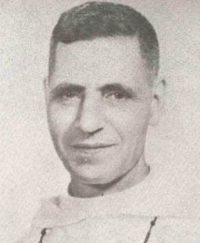I talked to some released prisoners. They recounted the treatment they had received at the concentration camp. They were not maltreated nor molested, nor even required to work, especially the Filipinos. Their release was undoubtedly an act of magnanimity, although the skeptics believe that it was due to the lack of food for their sustenance. Perhaps it was also for the purpose of winning public sympathy and loyalty, as the families of the released prisoners were constrained to be careful about the behavior of their wards and relatives.
The death toll at Camp O’Donnell has reached alarming heights. More than 30,000 were buried in Capas, where Camp O’Donnell is situated. Malaria and dysentery, aggravated by lack of food during the sojourn through the mountains of Bataan, caused general weakness among the soldiers. Instead of receiving medical care after their surrender, they were made to march from Bataan to San Fernando, the sick mingling with the healthy. There were some 60,000 of them herded into barracks which were meant to accommodate less than 2,000. The epidemic was widespread. The death toll was something like 500 to 600 a day, and their bodies were dumped into common graves. There were no medicines because those sent by people of Manila through the Red Cross were channeled by unscrupulous doctors to the black market, or sold to the prisoners at prohibitive prices.
